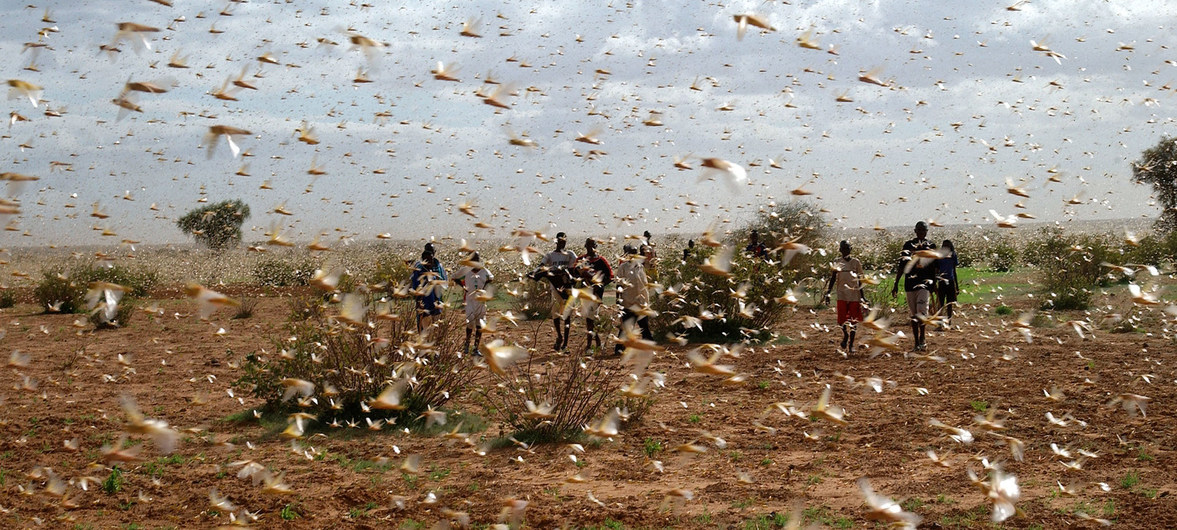Swarms of locusts have been plaguing Eastern Africa, India and Pakistan these past few weeks – devouring crops, multiplying and invading countries faster than anyone is able to respond. The question on people’s mind is, what can be done to stop the advance of these pests?
The UN has estimated that around $138m would be required to fight the crisis – the worst it has been in 70 years. These funds will be used to provide short-term relief to the countries affected, by way of using pesticides to rid the crops of the locusts.

A swarm of Locusts in Eastern Africa
So why exactly have these locusts been causing so many issues?
Well for one, locusts are extremely resilient, they can travel up to 150 kilometers a day, and they possess a ‘high capacity to multiply’. This means that we could be looking at a number of locusts that is 400 times as high as it is right now by June. In addition to that, adults locust can eat their own weight in food everyday. If we then think about how much that represents, with the current number of locusts, we can understand why they’re so devastating to countries and their crops. The minister of agriculture in South Sudan described the solution to this problem quite accurately saying:
“We need chemicals for spraying and also sprayers. You will also need cars to move while spraying and then later if it becomes worse, we will need aircraft.”
Any other way of dealing with the locusts?
It seems China had another idea in mind, as reports said that they were planning on sending 100,000 ducks to Pakistan. It was argued that they would be more effective than pesticides, as they possess quite the appetite for these types of pests. Regardless of the enthusiasm for the original idea, Zhang Long, a professor from the China Agricultural University, was quick to point out the flaws of that plan to The Guardian:
“Ducks rely on water, but in Pakistan’s desert areas, the temperature is very high”.
This is not the only problem with this story, as ducks generally tend to hang out in ponds or watery areas. Locusts do not usually constitute a good meal for them, as they typically consume wetland bugs. AP also came out to question the veracity of the story, and it was revealed that it is unlikely China will even send ducks to Pakistan. While the thought of ducks battling it out in a desertous area to save crops sounds almost heroic, I’m afraid that countries will stick to more conventional methods of dealing with the pests. That is to say the best way of dealing with pests, is with pesticide.
